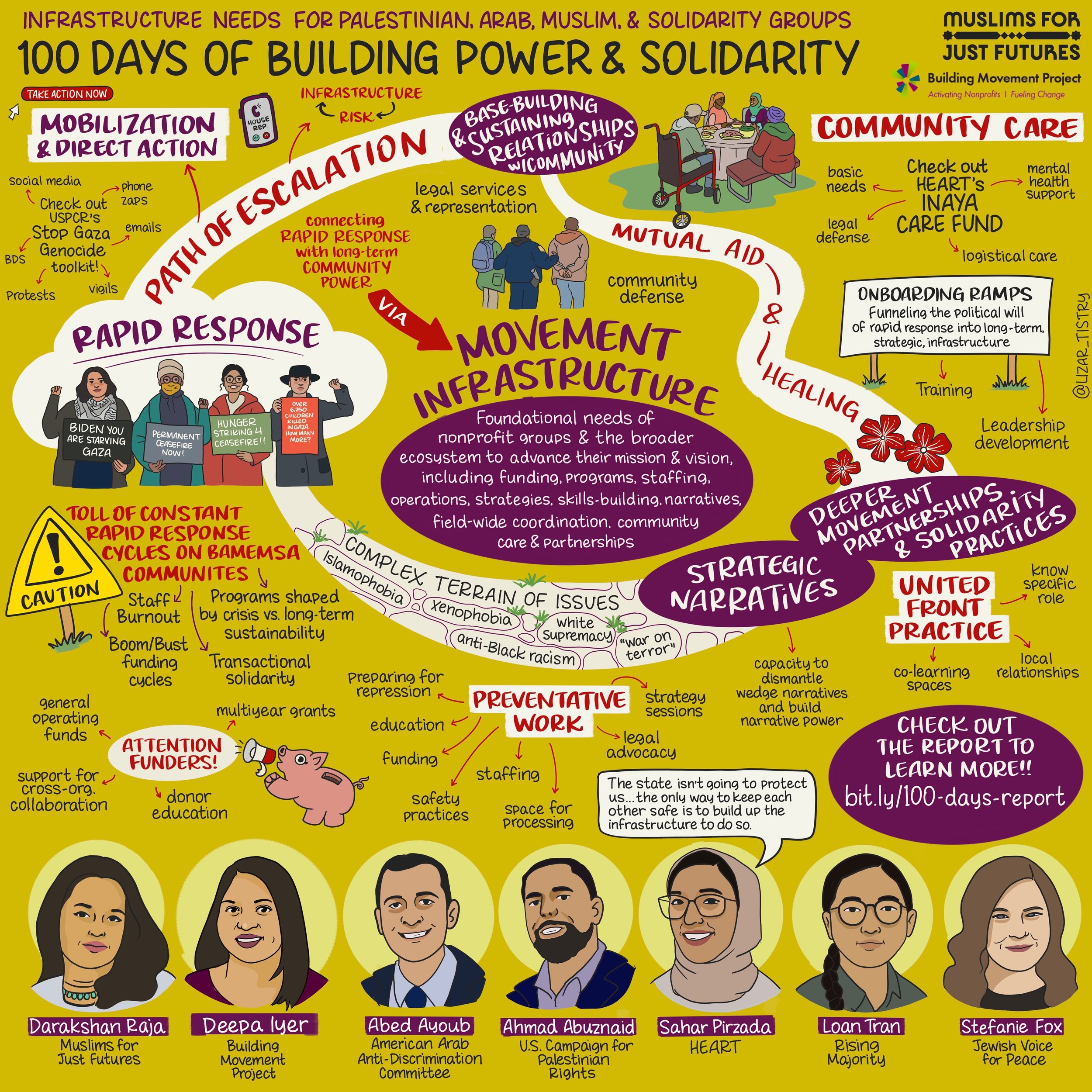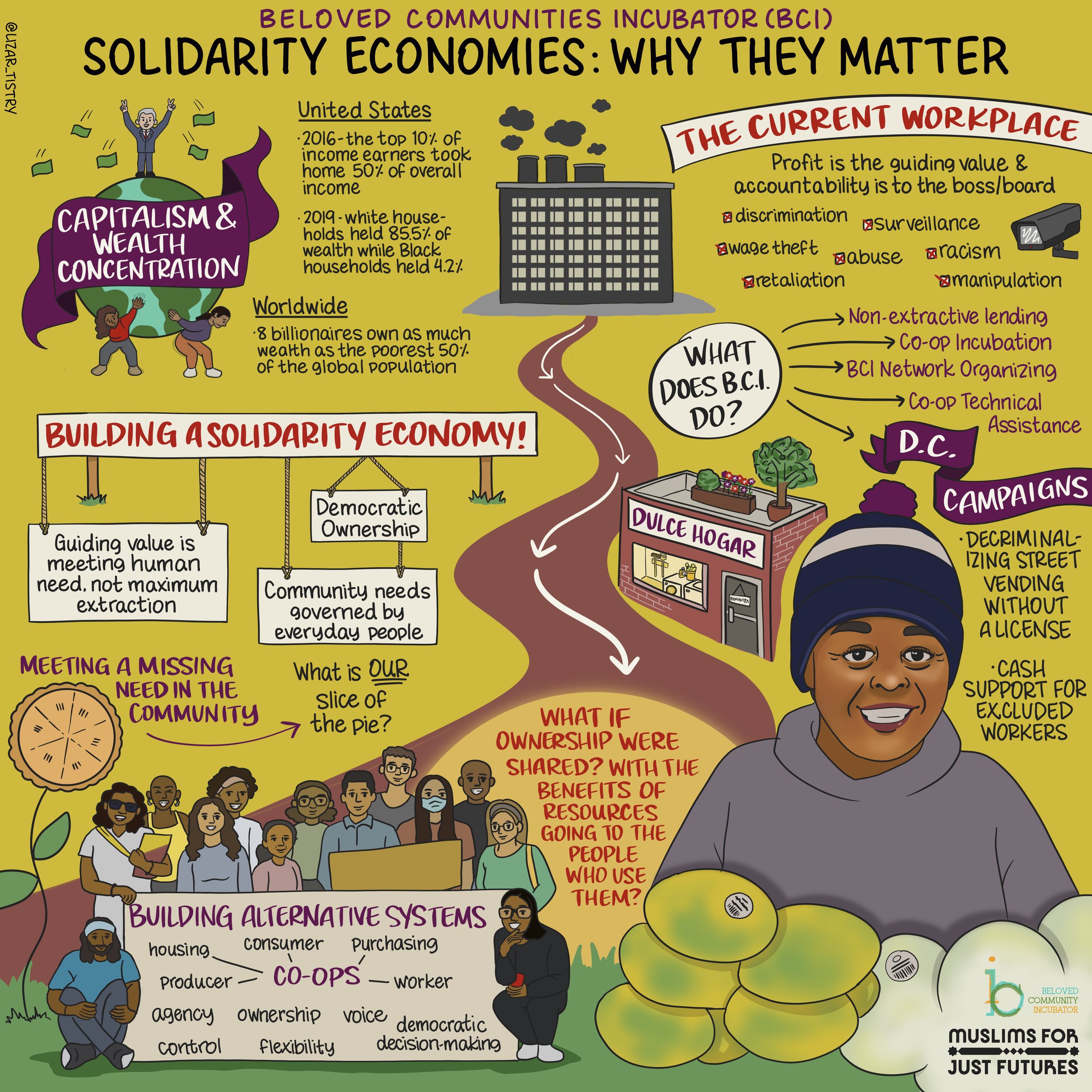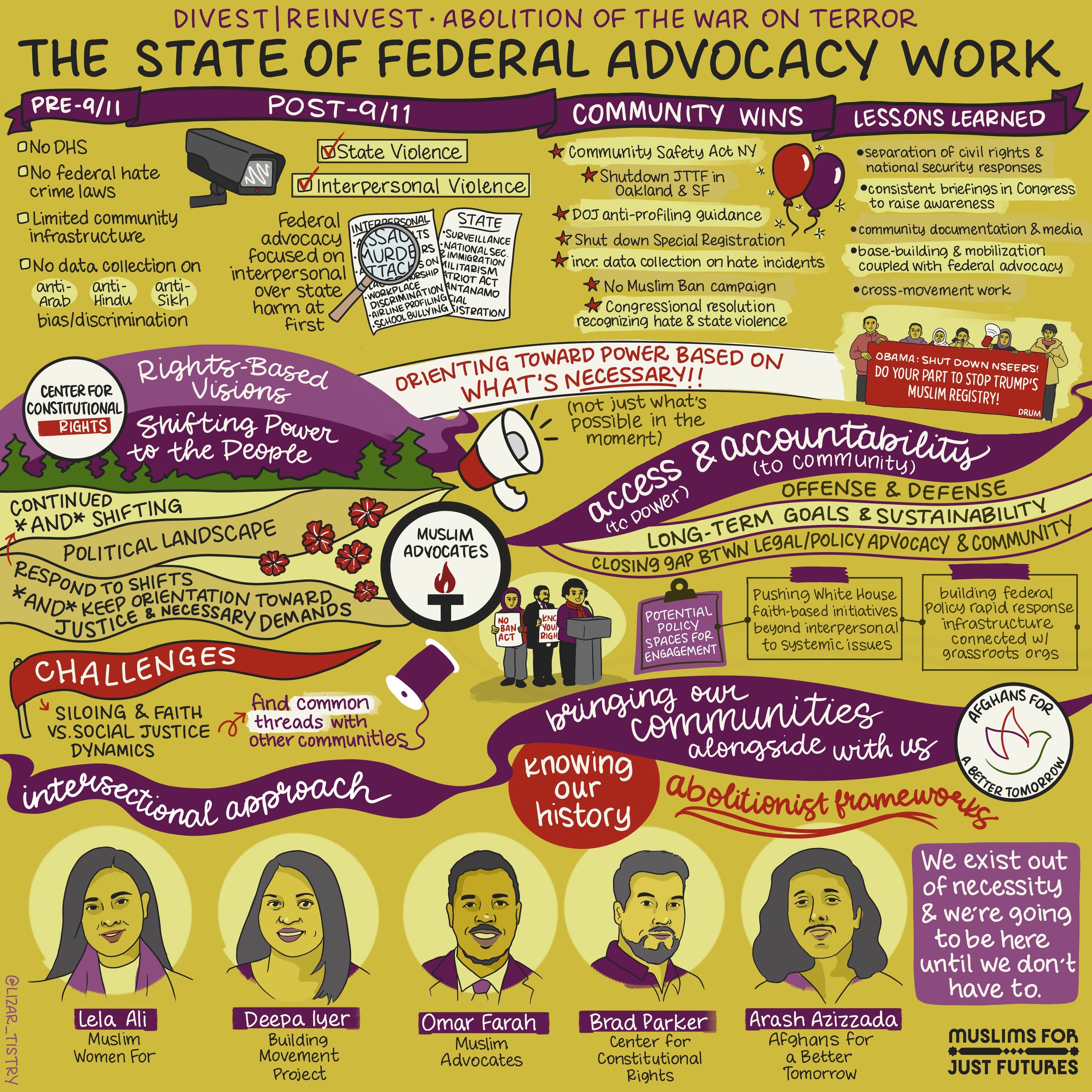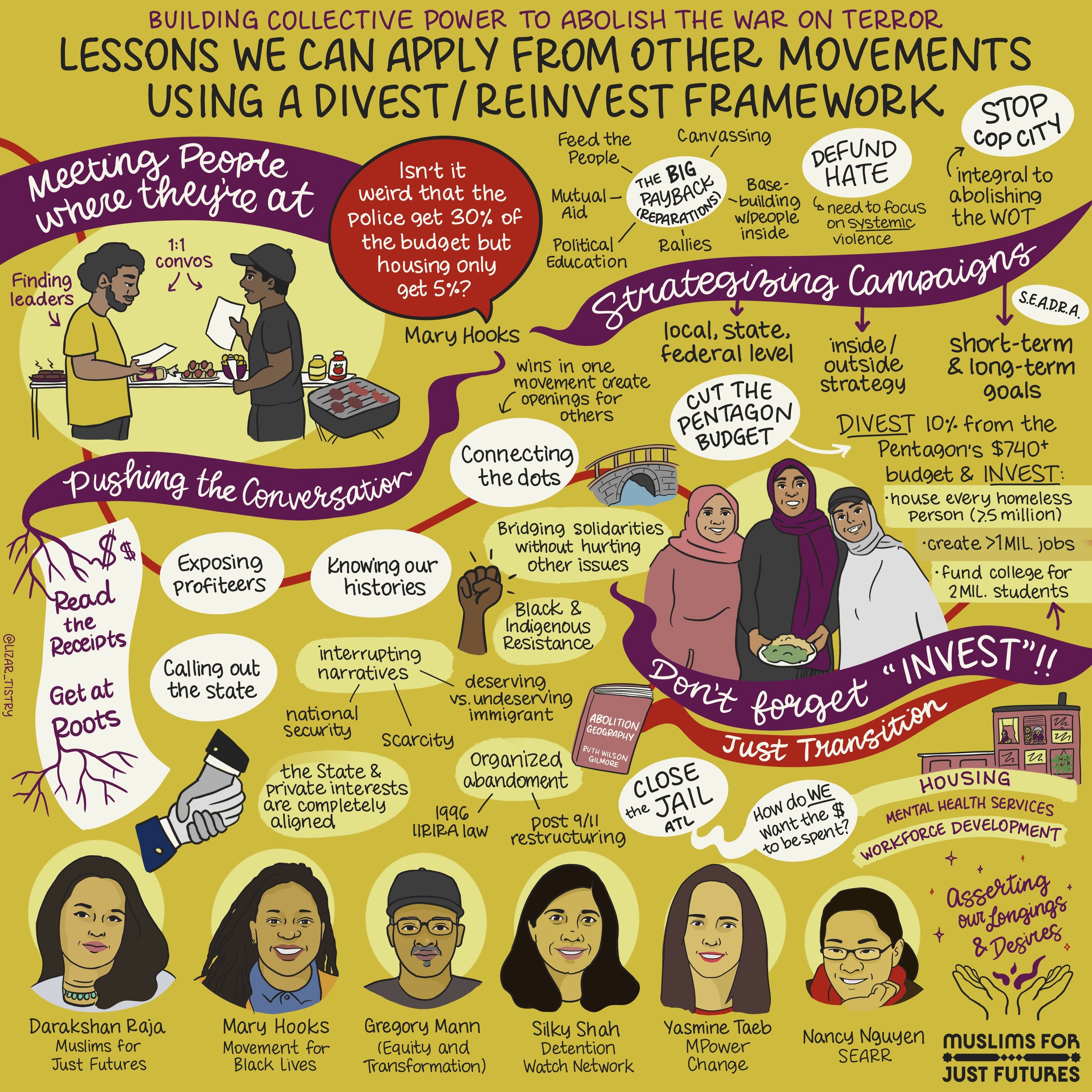Movement-Building
Movement-building is one of our core strategies. MJF convenes groups nationally who are values-aligned and committed to a divest and reinvest framework. One of our core movement-building projects is being a co-founder and co-anchor of the Muslim Abolitionist Futures National Network that seeks to build grassroots power to abolish the Global War on Terror, structural Islamophobia, gendered Islamophobia and invest in communities of care. In addition to co-anchoring the national network, we build relationships with other movement-building networks who are aligned with our work in order to integrate our work into broader movement work.
Investing in Abolitionist Power
The Muslim Abolitionist Futures Network is a national collective of grassroots groups that hold a cross-movement network to abolish the War on Terror and move towards a vision of collective healing, safety, dignity, and freedom for our communities with clear coordination of campaigns and movement demands.
Our collective groups focus on a cross-section of issues that fall under fighting the War on Terror: local anti-surveillance campaigns, government accountability and transparency efforts, reimagining community safety, and community organizing and leadership development of impacted communities, civic engagement efforts, political education, and intersectional movement building efforts. MJF’s specific role is to co-anchor the national network and hold the abolition, policy, and advocacy working group.
Updates
Check here for general updates on the Muslim Abolitionist Futures National Network.






This guide breaks down Material Support for Terrorism (MST) laws, Executive Order 14157 and includes their impact on social movement groups. It includes key terminology, legal analysis, case studies, and recommendations to help activists, organizers, and lawyers navigate these threats.